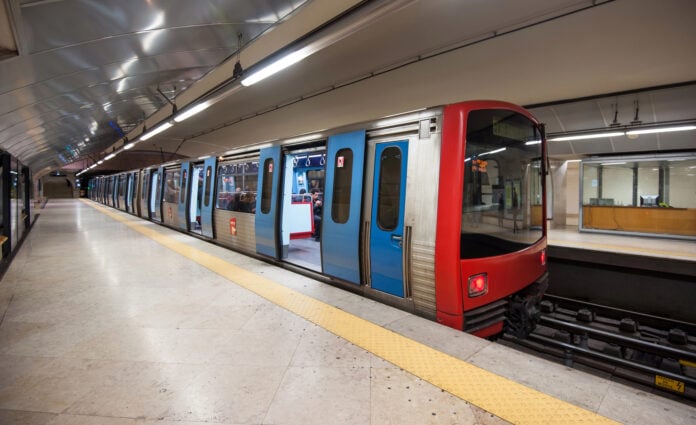Say it ain’t so! Commuters in Portugal’s capital are set to face significant transportation challenges starting Friday, May 23rd, as Metropolitano de Lisboa workers begin what could become one of the most extensive strikes in the company’s history.
The industrial action, initially set for 30 days, has the potential to double in length if workers’ demands remain unmet. Union representatives warn the strike could be renewed for an additional month, which could mean up to 60 days of service disruptions across Lisbon’s four metro lines.
Timing Affects Some of the Year’s Biggest Events
The strike’s timing couldn’t be more disruptive for the city. Lisbon is preparing to host the UEFA Women’s Champions League Final at Estádio José Alvalade at 5:00 pm on Saturday, May 24th, one of the most prestigious events in women’s football. This is then followed by the beloved Santos Populares festivals that typically draw massive crowds and heavily rely on public transportation, culminating on the evening of June 12 when the city parties long into the night to welcome Santo António, or St. Anthony’s Day, celebrated on June 13th.
Union Demands Go Beyond Event Pay
According to union leadership, workers are specifically demanding compensation for overtime and additional pay for working during special events, citing these upcoming occasions as prime examples of when extra staffing is crucial.
Workers are also pushing for increased lunch allowances and a reduction in the standard work week from the current schedule to 35 hours.
The union argues that staffing shortages force employees into constant overtime situations. Metropolitano de Lisboa keeps requesting workers in their activity plans and budgets, but the government doesn’t deliver personnel for operational areas.
Additional demands include immediate replacement of missing staff members and fulfillment of a December agreement regarding variable pay components like overtime and holiday compensation that workers claim remains unpaid.
Service Impact and Passenger Advice
As a result of the strike, metro passengers should prepare for widespread disruptions including:
–Extended waiting times beyond normal schedules
–Potential delays in train maintenance
–Traffic complications, particularly during high-demand periods
–Possible changes to operating hours
The transport company has urged customers to arrange alternative travel plans, especially during the Champions League Final weekend and peak usage times. Allow extra time in case you need to walk, take a bus, or call a Bolt or Uber instead.
New Metro Cars Continue to Come Online
Despite the strike concerns, Lisbon Metro continues to add new ML20 series carriages that it received in early 2025. These updated trains maximize interior space, along with larger windows, improved lighting, and enhanced accessibility features for wheelchair users, cyclists, and passengers with bulky luggage. No more sitting face-to-face in inefficient seating arrangements – Lisbon’s new carriages will now offer longitudinal seating where passengers will sit in rows running down the length of the carriage.
Advanced climate control systems and digital information panels will provide also real-time updates, and the newer model promises more efficient interval management between trains across the network.
The Lisbon Metro Overview
Lisbon’s metro network operates four color-coded lines serving the metropolitan area: Red (Airport-São Sebastião), Green (Telheiras-Cais do Sodré), Yellow (Rato-Odivelas), and Blue (Reboleira-Santa Apolónia). Normal operating hours run from 6:30 AM to 1:00 AM daily.
As negotiations continue, both commuters and city officials will be watching closely to see whether this labor dispute can be resolved before it reaches its first 30 days. If not, the strike may extend to 60 days.


